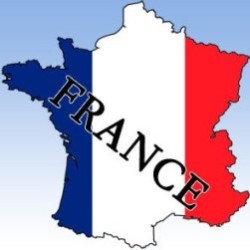French iPoker Revenues Slide 7% To €61m In Q1 2015

France’s online regulator authority (ARJEL) has released its gaming results for the first three months of 2015, and while the country’s online gambling market reported a 3% rise in gross gaming revenues to €190 million, iPoker revenues posted a 7% drop in gross revenues to €61 million compared to the €65 million reported for Q1 2014, and the €72 million for Q1 2013.
Bleak Times For French Poker
Online poker cash game revenues declined by 15% to €1.02 billion in Q1 2015, compared to the €1.2 billion collected during the same quarter in 2014. However, this figure was partly balanced by a 5% improvement in tournament participation to €426 million, of which Sit & Go’s generated 59% of revenues including lottery type poker games such as Spin & Gos.
The latest lackluster results follows ARJEL’s recent report on the state of France’s internet gambling market in 2014, which showed combined tournament and cash game revenues down a huge 14% to €4.3 billion in 2014, compared to the €5 billion taken in 2013. Since ARJEL produced its first annual figures in 2011, iPoker stakes have now plummeted by a third, with ARJEL President Charles Coppolani blaming the decline on “the worldwide economic crisis and because poker is a little out of fashion”.
Unattractive iPoker Market
Despite attempts to dismiss online poker as a “fad”, Coppolani’s view on the industry does not reflect the negligent role ARJEL has played in creating an unattractive landscape for the country’s online operators, who have been handed a ringed fenced poker market subjected to a restrictively high 37% tax rate. This has had a subsequent impact on the country’s online poker players, with almost half of French iPoker players now gambling on unregulated, unlicensed sites, according to a joint study by the Monitoring Centre for Drugs and Drug Addiction (ODFT), and the France’s Observatory of Games (ODJ).
While Coppolani does not seem to recognize the negative effect ARJEL has had on French internet poker, the regulator’s former President Jean-François Vilotte seemed to have had a firmer understanding of the situation, and warned:
“Seen from a broader perspective, this is a problem of legalized markets competing against non-legalized ones. If legalized markets won’t learn how to become more flexible and adjust themselves quicker to what people want, they will keep doing the work for illegal websites and help them to win against their legal competitors.”
Shared Liquidity More Attractive
Troubles noted in France’s internet poker market are mirrored in those of other European countries with segregated player pools, such as Spain and Italy, as well as in the USA’s three regulated states, although recently Nevada and Delaware have enacted their interstate compact in order to try and remedy the untenable situation.
In 2013, ARJEL even tried to have French laws changed in order to bring about shared liquidity with Italy and Spain, but unfortunately its proposals were flatly dismissed by the French government who envisioned shared player pools turning “online poker into an uncontrollable ogre eating one market after another”.
There are signs the government may now be changing its archaic views and becoming more receptive to the possibility of shared liquidity, however, after ARJEL made a similar suggestion this year, resulting in Emmanuel Macron, French Minister of the Economy, Finance and Industry, publicly announcing that, “We are currently working on [an amendment] with ARJEL with a view to including it in the draft digital law”.
Sports Betting Boosts iGaming Results
While poker is going through some challenging times, France’s sports betting market continues to give the industry a boost, with new account signups soaring 27% to 202,000 in Q1 2014, compared to 159,000 for the same period in 2014. Likewise, stakes were higher by 38% at €351 million, from €254 million a year ago, and gross profits, too, were up by 17% to €63 million, from €54 million in Q1 2014.
Continuing to be the sport of choice for online punters is soccer, accounting for a massive 58% of all bets placed, followed by tennis (18%), basketball (13%), ice hockey (3%), Rugby (3%), handball (2%), and volleyball (1%). Finally, online horse racing stakes remained fairly flat and only dropped by 1% to €266 million for Q1, from €269 million in Q1 2014, which in turn generated €66 million in gross profits, a figure unaltered from Q1 last year.







